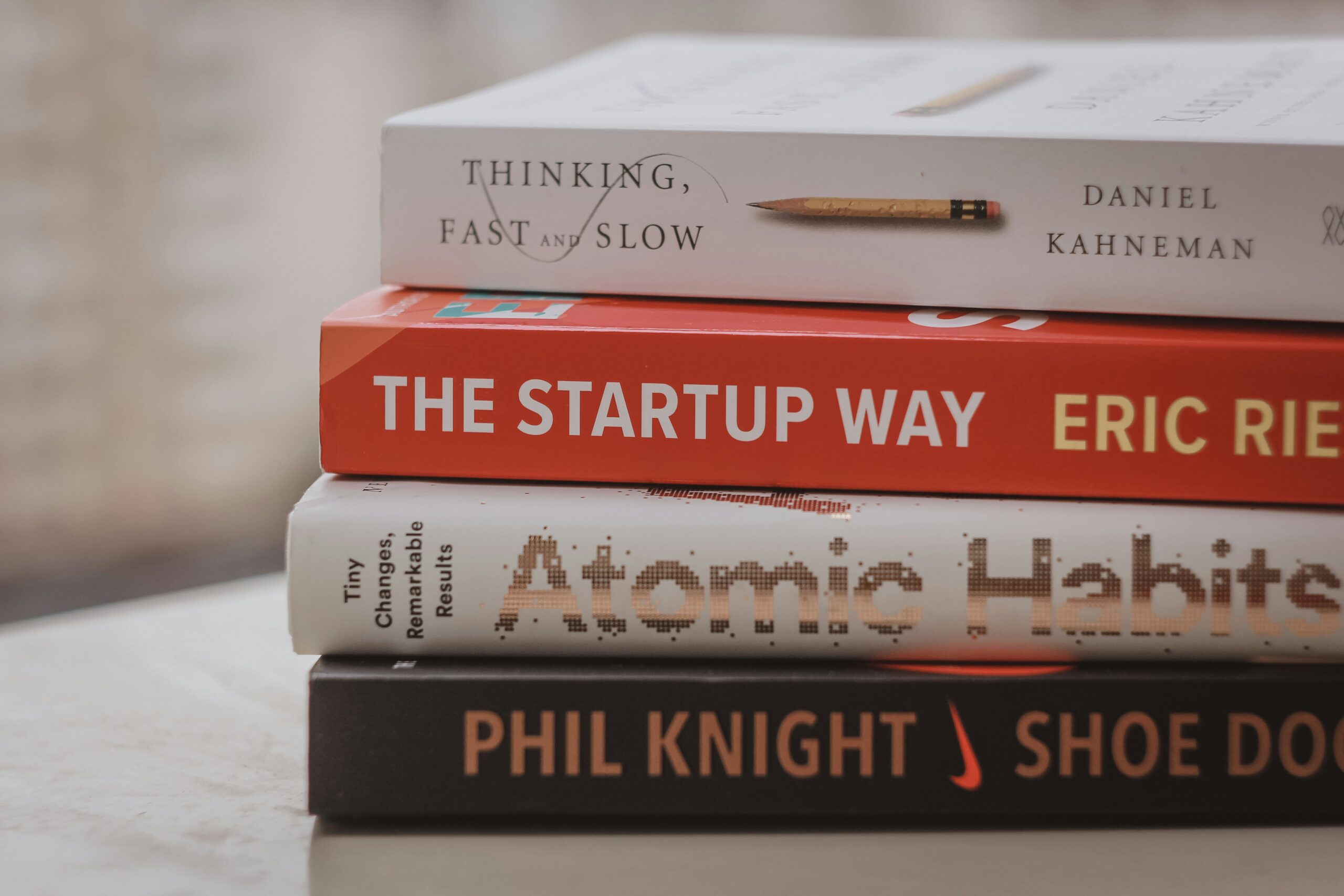100 Tiny Ways to Improve Yourself and Change Your Life in 2025
Self-improvement doesn’t have to be overwhelming. You don’t need a complete life overhaul to make progress. Small, consistent actions can lead to massive positive change over time.
By focusing on tiny improvements daily, you build habits that shape a better version of yourself. Whether boosting your mental well-being, improving your productivity, or enhancing your relationships, every little effort adds up.
Here are 100 tiny ways to improve yourself and improve your life!
Mindset Shifts for a Better Life
- Start each day with a positive affirmation. Affirmations are short, empowering statements that help shift your mindset and set a positive tone for the day.
- Practice gratitude by listing three things you’re grateful for. Gratitude helps you focus on the good in your life and increases overall happiness.
- Embrace a growth mindset—see challenges as learning opportunities. A growth mindset encourages resilience and lifelong learning.
- Let go of perfectionism and focus on progress. Perfectionism can lead to stress and procrastination; instead, celebrate small wins.
- Reframe negative thoughts into positive perspectives. Challenge negative self-talk by turning it into constructive self-reflection.
- Stop comparing yourself to others and focus on your journey. Comparison steals joy; instead, measure your progress based on your personal growth.
- Visualize your ideal self and take small steps toward becoming that person. Mental imagery helps create motivation and clarity in achieving goals.
- Develop self-compassion and speak kindly to yourself. Treat yourself with the same kindness you would a close friend.
- Challenge your fears by doing something outside your comfort zone daily. Growth happens when you step beyond familiar routines and take risks.
- Accept that failure is a part of growth and use it as feedback. Every failure is a lesson that brings you one step closer to success.

Daily Habits for Personal Growth
- Wake up 30 minutes earlier to start your day with intention. Extra morning time allows for mindfulness, planning, or self-care.
- Plan your day the night before to increase productivity. A structured plan helps reduce decision fatigue and increases focus.
- Keep a journal to reflect on your thoughts and progress. Journaling helps clarify your emotions, set goals, and track your development.
- Meditate for at least 5 minutes daily for mental clarity. Meditation reduces stress and enhances emotional stability.
- Read at least 10 pages of a personal development book each day. Reading expands knowledge and exposes you to new ideas and perspectives.
- Set a small daily goal and track your consistency. Achievable goals create momentum and build confidence over time.
- Reduce screen time and replace it with mindful activities. Less screen time means more opportunities for creativity and personal interaction.
- Take deep breaths when feeling stressed to reset your mind. Conscious breathing calms the nervous system and reduces anxiety.
- Avoid procrastination by using the “2-minute rule.” If a task takes less than two minutes, do it immediately to stay productive.
- Prioritize self-care without guilt—it’s essential for growth. Taking care of yourself ensures long-term well-being and resilience.
Productivity Hacks for Success
- Use the Pomodoro technique (25 minutes of work, 5-minute breaks). This time management method improves focus and prevents burnout.
- Declutter your workspace to improve focus. A clean, organized environment reduces distractions and enhances efficiency.
- Learn to say “no” to unnecessary commitments. Protecting your time allows you to focus on what truly matters.
- Batch similar tasks together to save time. Grouping related activities boosts efficiency and minimizes mental fatigue.
- Limit multitasking—focus on one task at a time. Doing one thing at a time increases the quality and speed of your work.
- Start your day with the most challenging task. Completing tough tasks early increases motivation and sets a productive tone.
- Set weekly and monthly goals for better clarity. Long-term goal setting keeps you on track and motivated.
- Use a planner or app to track tasks and deadlines. Keeping a digital or physical planner enhances organization and accountability.
- Reduce distractions by turning off unnecessary notifications. Unplugging from social media and alerts improves concentration.
- Review and reflect on your progress every Sunday. A weekly check-in helps you assess growth and adjust plans as needed.
Building Meaningful Relationships
- Listen more than you speak in conversations. Active listening shows empathy and strengthens relationships.
- Express appreciation to loved ones regularly. Small gestures of gratitude can deepen your connections.
- Reach out to an old friend to reconnect. Strong relationships require effort and consistency.
- Join a club or group that shares your interests. Socializing with like-minded people builds meaningful connections.
- Offer help to someone without expecting anything in return. Acts of kindness strengthen relationships and community bonds.
- Set boundaries to protect your mental health. Healthy boundaries prevent burnout and resentment.
- Make eye contact and smile when talking to people. Non-verbal cues improve communication and show confidence.
- Give genuine compliments freely. Positive reinforcement makes others feel valued and strengthens bonds.
- Apologize sincerely when you make a mistake. Owning up to your errors shows maturity and builds trust.
- Surround yourself with people who inspire and uplift you. Your environment influences your mindset and well-being.
Emotional Well-Being and Happiness
- Laugh more—it’s great for your mental health. Laughter reduces stress and promotes relaxation.
- Spend time with people who make you happy. Positive relationships contribute to emotional well-being.
- Limit exposure to negative news and social media. Constant negativity can impact mental health.
- Write down three good things that happened each day. Reflecting on positives enhances gratitude and happiness.
- Listen to music that lifts your mood. Music can instantly change emotions and reduce stress.
- Declutter your living space for a clear mind. A clean environment improves focus and mental peace.
- Take breaks to avoid emotional exhaustion. Rest allows your mind to reset and function better.
- Engage in a creative hobby like painting or writing. Creativity is a great emotional outlet.
- Accept what you cannot control and let go. Resisting reality leads to unnecessary suffering.
- Spend time in nature to recharge. Being outdoors enhances mental clarity and reduces anxiety.

Financial Growth and Smart Money Habits
- Track your expenses to understand where your money goes. Awareness is the first step to financial health.
- Set a budget and stick to it. Budgeting prevents unnecessary spending and ensures financial stability.
- Save a small percentage of your income regularly. Even small savings add up over time.
- Avoid impulse purchases by waiting 24 hours before buying. This prevents unnecessary spending.
- Invest in knowledge about financial literacy. Understanding money helps you make smarter financial decisions.
- Pay off debt as soon as possible. Reducing debt improves financial freedom.
- Start a side hustle for additional income. Diversifying income streams creates security.
- Use cash instead of credit for everyday purchases. It’s easier to control spending with tangible money.
- Negotiate bills and expenses whenever possible. Many services offer discounts if you ask.
- Donate to charity or help those in need. Giving back provides fulfillment and supports communities.
Lifelong Learning and Skill Development
- Learn a new skill that interests you. Continuous learning keeps the mind sharp.
- Listen to podcasts or audiobooks during free time. These are great ways to absorb knowledge efficiently.
- Take an online course to enhance your expertise. Education opens new opportunities.
- Practice a second language for brain stimulation. Learning a new language improves cognitive function.
- Read about different perspectives and cultures. Exposure to diverse viewpoints fosters understanding.
- Attend seminars or workshops in your field. Networking and learning go hand in hand.
- Write down what you learn each day. Retaining knowledge is easier when you reflect on it.
- Teach something to someone else. Teaching reinforces your own understanding.
- Ask more questions and stay curious. Curiosity leads to continuous growth.
- Challenge yourself to step outside your comfort zone. Growth happens when you embrace discomfort.
Ways to Overcome Challenges and Stay Motivated
- Break big tasks into small, manageable steps. Small wins lead to major progress.
- Celebrate small victories to stay motivated. Acknowledging progress keeps you going.
- Create a vision board for inspiration. Visualizing goals enhances motivation.
- Find an accountability partner to stay on track. Support systems increase commitment.
- Limit distractions when working on important tasks. Focus leads to better results.
- Turn failures into lessons instead of roadblocks. Mistakes are opportunities to learn.
- Develop a morning routine that energizes you. A strong start sets the tone for the day.
- Practice resilience—bounce back from setbacks. Life is full of challenges, but resilience helps you thrive.
- Use motivational quotes as daily reminders. Words have the power to uplift and inspire.
- Keep going even when you don’t feel like it. Discipline leads to success when motivation fades.

Final Steps to Personal Transformation
- Start journaling your thoughts daily. Writing helps process emotions and reflect on personal growth.
- Unsubscribe from negative influences online. Your digital environment affects your mindset.
- Adopt a growth mindset. Believe that abilities and intelligence can be developed with effort.
- Say “no” when necessary. Protecting your time and energy is essential for self-improvement.
- Practice gratitude every morning. Starting the day with thankfulness shifts your perspective.
- Reduce multitasking for better focus. Doing one thing at a time improves efficiency.
- Take responsibility for your actions. Owning up to mistakes fosters maturity and growth.
- Develop a nighttime routine to unwind. Good sleep habits enhance productivity and health.
- Speak kindly to yourself. Your inner dialogue impacts self-esteem and confidence.
- Prioritize your mental health. Seeking help when needed is a sign of strength, not weakness.
- Engage in random acts of kindness. Spreading positivity improves your well-being and others’.
- Limit your screen time. Less time on devices means more time for real-life interactions.
- Read at least one book per month. Reading expands knowledge and stimulates creativity.
- Create a list of your long-term goals. Having a clear vision keeps you motivated.
- Practice mindfulness daily. Being present reduces stress and increases happiness.
- Exercise self-discipline. Sticking to commitments builds character and resilience.
- Start a passion project. Doing what you love brings joy and fulfillment.
- Connect with nature more often. Time outdoors enhances mental clarity and relaxation.
- Celebrate your progress. Acknowledge how far you’ve come to stay motivated.
- Never stop improving. Self-growth is a lifelong journey, and every small step counts.
Final Thoughts: The Power of Small Changes
Self-improvement is a lifelong journey, and every small effort adds up to significant transformation. By incorporating tiny habits into your daily life, you create positive momentum that leads to lasting change. Whether it’s improving your mindset, relationships, health, or finances, consistency is key. Start with just one tiny step today, and over time, you’ll look back and see how far you’ve come.







